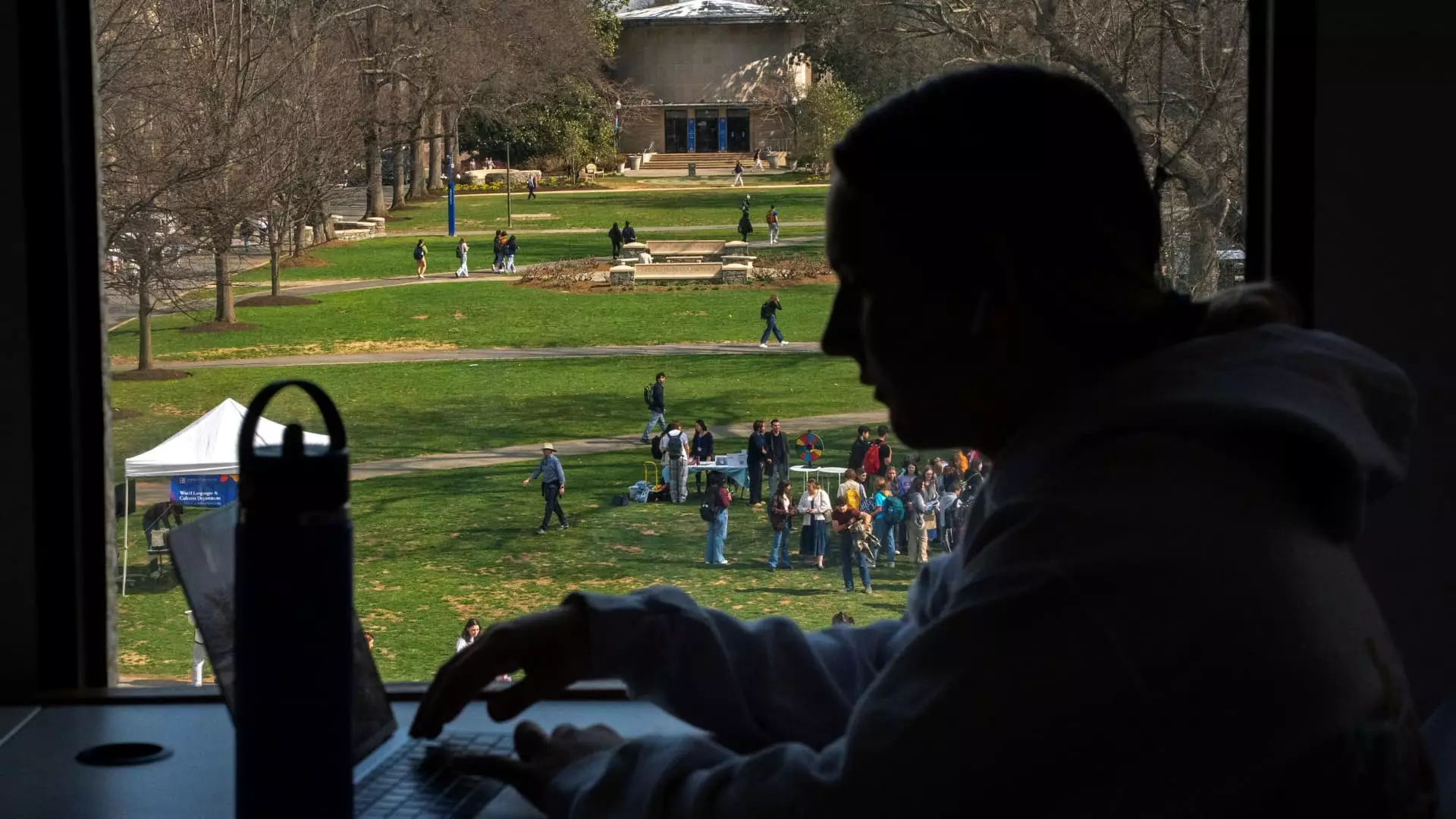In an era where higher education is often touted as the key to social mobility, the systemic failures to support student borrowers reveal a troubling truth: promises of relief are consistently undercut by political expediency and economic self-interest. The Biden administration’s ambitious SAVE plan, once heralded as a revolutionary step toward making student loan repayment more manageable, has been effectively dismantled, leaving millions in limbo. Meanwhile, the Trump administration’s rollback, cloaked in the guise of fiscal conservatism, exposes a troubling indifference to the financial well-being of young Americans striving to build secure futures. This cycle of underperformance and rollback not only undermines trust but also deepens economic inequality, as those most vulnerable bear the brunt.
The initial hope placed in the SAVE plan was rooted in its potential to ease financial strain for borrowers, reducing their monthly payments by up to fifty percent. Making higher education more accessible and affordable was a core argument for the plan’s implementation. However, political opposition—both legal and legislative—intervened at every turn, stripping away these protections. The swift repeal by Congress, coupled with the Department of Education’s failure to shield the plan from legal challenges, reveals a disturbing lack of commitment to student interests. This abandonment leads to a critical question: are student borrowers mere pawns in larger political games aimed at appeasing fiscal conservative interests?
The Consequences of Policy Instability and Ideological Short-Sightedness
The entrenched cycle of policy oscillation wreaks havoc on borrower stability. With the SAVE plan defunct, borrowers face an uncharted future with fewer affordable options. Instead of the promised relief, new regulations limit borrowers’ choices to minimal, and often inadequate, repayment programs. The so-called “Repayment Assistance Plan,” introduced as a stopgap for new borrowers, is significantly more burdensome than its predecessor, forcing some young professionals to face monthly payments more than double what they would have paid under the original plan. For many, this shift is not merely inconvenient—it is financially devastating.
It’s a stark reminder of how political motivations override the needs of everyday Americans. The Trump-era cuts and legal dismantling of student loan protections illustrate a systemic prioritization of fiscal conservatism over social responsibility. The focus becomes less on fostering an educated and empowered population and more on capping expenses, regardless of the social consequences. The fallout is immediate: increased defaults, lowered credit scores, and a generation burdened with insurmountable debt. Such policies fail to recognize that investing in education is ultimately investing in the nation’s economic resilience.
Ignoring the Human Toll in Favor of Short-term Fiscal Censorship
At the heart of this political tug-of-war lies the human cost. When students and recent graduates are forced into higher payments with fewer options, stress and financial insecurity follow. Student debt is not merely a financial issue; it’s a social crisis. The lack of a sustainable, affordable repayment plan threatens to stifle career choices, delay milestones such as homeownership, and compromise mental health. For marginalized communities, already facing systemic barriers, these policy reversals exacerbate inequality, reinforcing a cycle of poverty and limited upward mobility.
Moreover, the rhetoric surrounding fiscal responsibility often neglects the long-term social costs of making higher education inaccessible or unmanageable. If young Americans are to contribute meaningfully to society and stimulate economic growth, they need stability and support, not punitive policies aimed only at curbing government expenditure. The repeated pattern of promises made and betrayed exposes a disheartening truth: the economic future for many young Americans remains uncertain and increasingly bleak, not because they lack ambition, but because politics refuse to prioritize practical solutions that uphold their fundamental rights.
This ongoing saga of policy erosion demonstrates a fundamental failure of leadership—one that disregards the core principle that education is a societal right, not a privilege reserved for a select few able to navigate a labyrinth of increasingly hostile repayment options. The persistent dismantling of borrower protections signals a broader political disregard for future generations’ economic security and social mobility. The question is no longer about whether student loan policies need reform; it’s about who truly benefits from the current trajectory—and the answer is unsettling.

